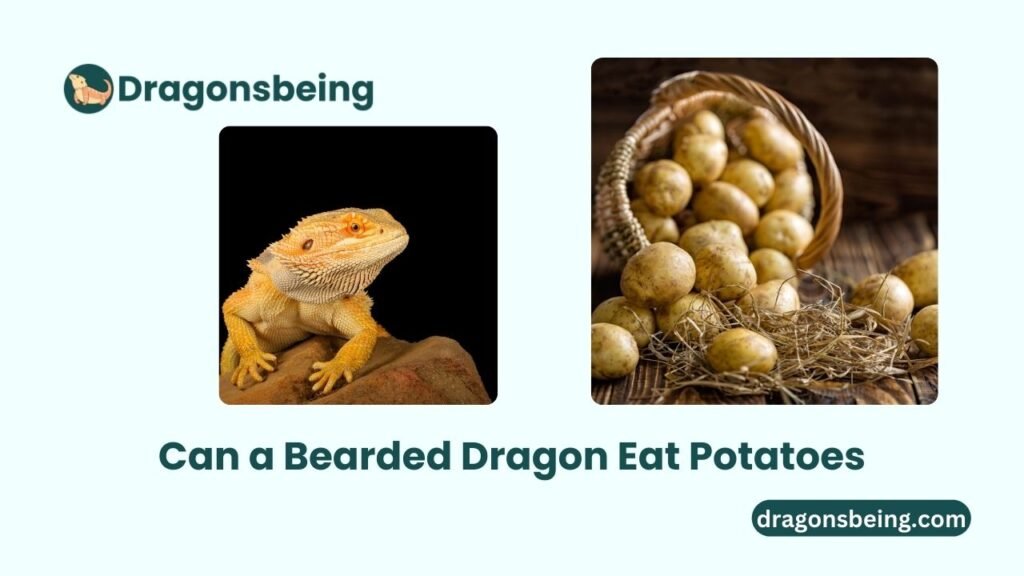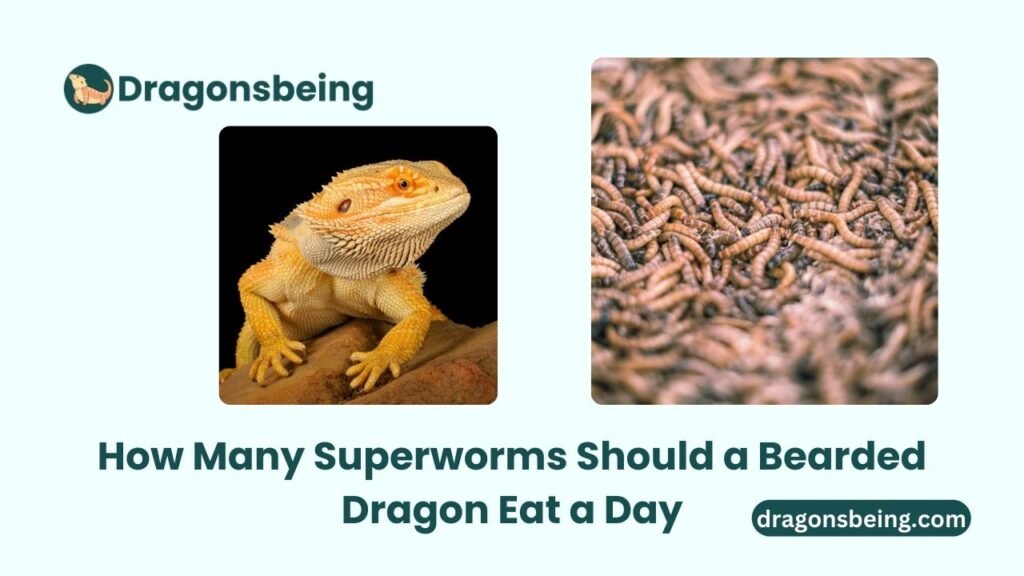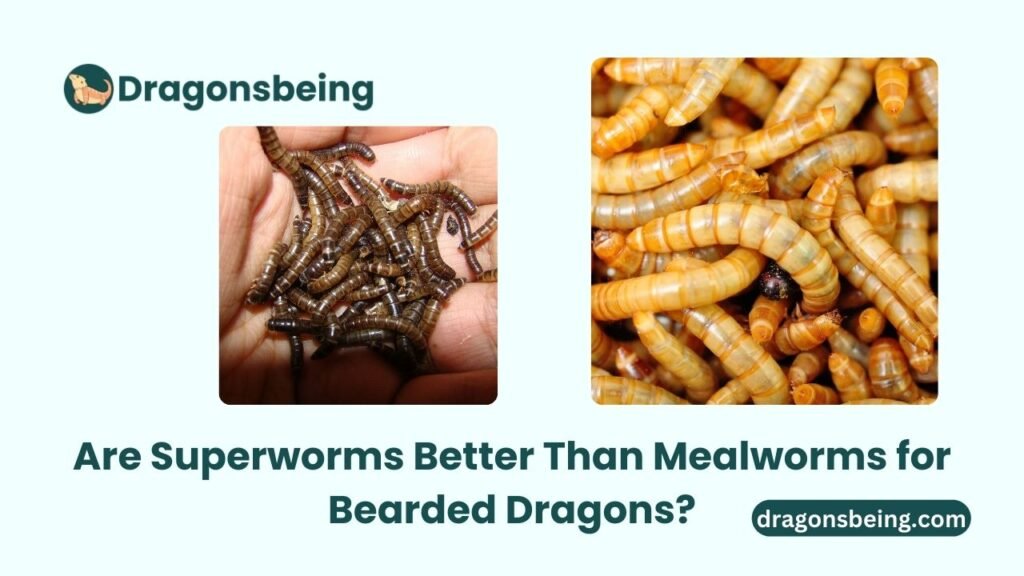Bearded dragons can eat potatoes, but only in small amounts. Potatoes should not be a regular part of their diet.
Bearded dragons are fascinating reptiles that require a balanced diet for optimal health. Their natural diet includes insects, greens, and some fruits.
Many owners wonder about including vegetables like potatoes. While potatoes are technically safe in small quantities, they offer little nutritional value.
The high starch content can lead to digestive issues if fed regularly. It’s essential to prioritize foods that provide vitamins and minerals crucial for your bearded dragon’s well-being.
Always introduce new foods gradually and monitor their reactions. Understanding what to feed your pet can enhance their life quality and longevity, ensuring they thrive in captivity.
Potatoes In A Nutshell
Potatoes are common vegetables found in many kitchens. They belong to the nightshade family. Their versatile nature makes them popular worldwide. But can bearded dragons eat potatoes? This section explores the details.
Nutritional Profile
Potatoes have a unique nutritional profile. They are rich in carbohydrates and provide some vitamins. Here’s a quick look at their nutrients:
| Nutrient | Amount per 100g |
|---|---|
| Calories | 77 |
| Carbohydrates | 17g |
| Protein | 2g |
| Fat | 0.1g |
| Fiber | 2.2g |
| Vitamin C | 19.7mg |
Potatoes also contain potassium and vitamin B6. The high carbohydrate level can be a concern for reptiles. It’s important to consider their overall diet.
Varieties Of Potatoes
Different potato varieties exist, each with unique traits. Here are some common types:
- Russet Potatoes: High in starch, great for baking.
- Red Potatoes: Waxy texture, ideal for salads.
- Yukon Gold: Creamy texture, good for mashing.
- Sweet Potatoes: Nutrient-rich and sweet in flavor.
Bearded dragons can eat some potato varieties in small amounts. It’s best to limit their intake. Always consult a vet for proper dietary advice.
Risks Of Feeding Potatoes To Bearded Dragons
Feeding potatoes to bearded dragons poses several risks. While they may seem harmless, the potential dangers are significant. Understanding these risks helps ensure your pet’s health.
Oxalates And Goitrogens
Potatoes contain oxalates and goitrogens. Both can cause health issues for bearded dragons.
- Oxalates can bind calcium. This reduces calcium absorption.
- Goitrogens interfere with thyroid function. This affects growth and metabolism.
Consuming too many oxalates and goitrogens can lead to:
- Calcium deficiency
- Thyroid problems
- Weak bones
Carbohydrates And Sugars
Potatoes are high in carbohydrates and sugars. Bearded dragons need a balanced diet.
Excessive carbs can lead to:
- Obesity
- Digestive issues
- Fatty liver disease
Limit sugary foods for optimal health. Choose leafy greens instead.
| Risk Factor | Effect on Bearded Dragons |
|---|---|
| Oxalates | Reduces calcium absorption |
| Goitrogens | Affects thyroid function |
| High Carbs | Leads to obesity |
| High Sugars | Causes digestive issues |
Safe Feeding Practices
Feeding your bearded dragon requires careful consideration. Not all foods are safe. Potatoes can be tricky. Follow safe feeding practices to ensure your pet stays healthy.
Frequency And Amount
Potatoes should be fed rarely. They contain starch, which is not ideal for bearded dragons. Here are some key points:
- Limit potato servings to once a month.
- Offer small amounts, like a pea-sized piece.
- Monitor your dragon’s reaction after feeding.
Too much potato can lead to health issues. Stick to occasional treats.
Preparation Methods
Preparing potatoes correctly is crucial. Here are some safe methods:
- Wash: Always wash potatoes thoroughly.
- Cook: Boil or steam until soft. Avoid frying.
- Cut: Dice potatoes into small, manageable pieces.
- Cool: Let them cool before feeding.
Never feed raw potatoes. They can be harmful. Safe preparation keeps your bearded dragon healthy.
Healthy Alternatives To Potatoes
Bearded dragons need a varied diet for optimal health. Potatoes are not suitable for them. Here are some healthy alternatives that provide essential nutrients. These options are safe and beneficial for your pet.
Vegetables
Fresh vegetables are crucial for a bearded dragon’s diet. They offer vitamins and minerals. Here are some great choices:
- Collard greens – Rich in calcium and fiber.
- Mustard greens – Excellent source of vitamins A and C.
- Carrots – High in beta-carotene, good for vision.
- Squash – Provides hydration and nutrients.
- Bell peppers – Packed with antioxidants.
Fruits
Fruits add sweetness and hydration to your bearded dragon’s meals. They should be offered in moderation. Here are some fruit options:
| Fruit | Benefits |
|---|---|
| Strawberries | High in vitamin C and low in calories. |
| Blueberries | Rich in antioxidants, good for health. |
| Watermelon | Hydrating and full of vitamins. |
| Mango | Contains vitamins A and E. |
| Papaya | Supports digestion and has vitamins. |
These healthy alternatives provide essential nutrients. Your bearded dragon will enjoy a varied and balanced diet. Always wash fruits and vegetables before serving.
Understanding A Balanced Bearded Dragon Diet
A balanced diet is essential for your bearded dragon’s health. It helps them grow strong and live longer. Bearded dragons need a mix of proteins, vitamins, and minerals. Knowing what to feed them is key.
Protein Sources
Protein is crucial for growth and energy. Young bearded dragons need more protein than adults. Here are some good protein sources:
- Crickets
- Mealworms
- Dubia roaches
- Wax worms (in moderation)
- Silkworms
Offer protein sources about 2-3 times a week. Always ensure they are gut-loaded. This means feeding the insects nutritious foods before offering them to your dragon.
Calcium-rich Foods
Calcium is vital for strong bones and preventing metabolic bone disease. Include these calcium-rich foods in their diet:
| Food | Calcium Content |
|---|---|
| Collard greens | Calcium-rich |
| Mustard greens | Calcium-rich |
| Turnip greens | Calcium-rich |
| Dandelion greens | Calcium-rich |
| Calcium supplements | Highly recommended |
Dust foods with calcium powder 2-3 times a week. This helps avoid calcium deficiency. Always offer fresh vegetables daily. Make sure they are chopped small.
Understanding a balanced diet helps keep your bearded dragon healthy. Focus on variety and nutrition. This ensures your dragon thrives.
Expert Opinions On Bearded Dragons And Potatoes
Understanding whether bearded dragons can eat potatoes requires expert insights. Veterinarians and experienced owners share valuable knowledge about this topic. Their opinions help ensure the health and happiness of your pet.
Veterinarian Insights
Veterinarians generally advise caution with potatoes. Here are key points:
- High Starch Content: Potatoes contain a lot of starch.
- Low Nutritional Value: They offer limited nutrients for bearded dragons.
- Risk of Toxicity: Green parts of potatoes can be toxic.
- Digestive Issues: Starch can lead to digestive problems.
Some veterinarians suggest alternatives. Leafy greens and veggies provide better nutrition. Always consult your vet before adding new foods.
Experienced Owners’ Tips
Many bearded dragon owners share their experiences with potatoes. Here are some useful tips:
- Moderation: If you choose to feed potatoes, do it sparingly.
- Cooked Only: Always cook potatoes before serving.
- Small Pieces: Cut potatoes into tiny, manageable pieces.
- Monitor Health: Watch for any negative reactions.
Owners suggest focusing on safer options. Leafy greens, squash, and bell peppers are great alternatives. These foods provide essential vitamins and minerals.
Signs Of Poor Nutrition In Bearded Dragons
Bearded dragons need a balanced diet to thrive. Poor nutrition can lead to serious health issues. Recognizing signs of malnutrition is crucial for their well-being.
Health Issues
Bearded dragons can show various health problems due to poor nutrition. Here are some common issues:
- Metabolic Bone Disease (MBD): Caused by lack of calcium and vitamin D.
- Obesity: Overfeeding or too many high-fat foods can lead to obesity.
- Dehydration: Not enough water intake can cause serious complications.
- Digestive Problems: Improper diet may lead to constipation or diarrhea.
Behavioral Changes
Behavior often reflects a bearded dragon’s health. Look for these changes:
- Lethargy: Less active than usual; sleeping more.
- Aggression: More irritable or aggressive than normal.
- Loss of Appetite: Refusing food or showing less interest in eating.
- Stress Signs: Hiding more often or exhibiting strange postures.
| Sign | Possible Issue |
|---|---|
| Metabolic Bone Disease | Lack of calcium and vitamin D |
| Obesity | Overfeeding high-fat foods |
| Dehydration | Not drinking enough water |
| Lethargy | General health decline |
Creating A Weekly Feeding Schedule
A well-structured weekly feeding schedule is key for your bearded dragon’s health. Proper planning ensures they receive the right nutrients. It also helps avoid overfeeding or underfeeding.
Dietary Planning
Creating a balanced diet is essential. Focus on a mix of vegetables, fruits, and protein. Here’s a simple weekly plan:
| Day | Protein Source | Vegetables | Fruits |
|---|---|---|---|
| Monday | Crickets | Collard Greens | Blueberries |
| Tuesday | Mealworms | Carrots | Mango |
| Wednesday | Dubia Roaches | Mustard Greens | Strawberries |
| Thursday | Crickets | Bell Peppers | Apples |
| Friday | Mealworms | Zucchini | Peaches |
| Saturday | Dubia Roaches | Spinach | Grapes |
| Sunday | Variety | Mixed Greens | Bananas |
Adjust this schedule based on your dragon’s age and size. Young dragons need more protein than adults. Always wash vegetables and fruits before serving.
Treats And Snacks
Treats are important for variety but should be limited. Offer treats once or twice a week. Here are some safe options:
- Superworms
- Small pieces of cooked chicken
- Flowers like dandelions
- Frozen peas
Limit treats to avoid obesity. Always monitor your dragon’s weight. Adjust portions based on their activity level and health.
Conclusion: Balancing Caution With Variety
Bearded dragons enjoy a variety of foods. Their diet needs balance. Potatoes can be a concern. They should be given occasionally, not regularly. Understanding the risks helps pet owners make better choices.
Potatoes have certain nutrients but also contain solanine. This chemical can be toxic to bearded dragons. Symptoms include lethargy and digestive issues. Therefore, it is crucial to use caution.
Consider these tips for feeding potatoes:
- Peel and cook the potatoes before serving.
- Offer small, bite-sized pieces.
- Monitor your dragon for any unusual behavior.
Balancing caution with variety is vital. Providing a diverse diet keeps your bearded dragon healthy. Include leafy greens, insects, and fruits. Always research new foods before introducing them.
Final Thoughts
Potatoes can be part of a bearded dragon’s diet. They shouldn’t dominate their meals. Focus on a mix of safe, nutritious foods. This strategy promotes overall health and happiness.
Further Reading And Resources
For more information, check these resources:
| Resource | Description |
|---|---|
| Bearded Dragon Care Guides | Detailed advice on diet and health. |
| Reptile Forums | Community support and shared experiences. |
| Veterinary Resources | Expert advice on reptile health. |
Use these resources for further knowledge. Keeping your bearded dragon healthy is the priority.
Frequently Asked Questions
Can Bearded Dragons Eat Raw Potatoes?
Raw potatoes can be toxic to bearded dragons due to solanine, which can cause health issues.
Is Cooked Potato Safe For Bearded Dragons?
Cooked potatoes are safer but should be given in moderation. They lack essential nutrients for bearded dragons.
What Happens If A Bearded Dragon Eats Potatoes?
Eating potatoes may lead to digestive problems or toxicity, impacting your dragon’s health negatively.
How Should I Prepare Potatoes For My Dragon?
If feeding potatoes, cook them thoroughly, avoid seasoning, and offer in tiny, digestible pieces.
Are There Better Foods For Bearded Dragons?
Leafy greens, insects, and fruits provide better nutrition and health benefits for bearded dragons than potatoes.
How Often Can Bearded Dragons Eat Potatoes?
Potatoes should be a rare treat, not a regular part of their diet, to ensure optimal health.
Conclusion
Feeding your bearded dragon the right foods is essential for their health. While potatoes may not be toxic, they lack the necessary nutrients for these reptiles. Stick to a diet rich in greens, insects, and fruits to ensure your pet thrives.
Always consult a vet for tailored dietary advice.

Hi, I’m Dr. Michelle Mayers, a veterinary professional with a deep passion for animal health and well-being. Over the years, I’ve dedicated my life to caring for animals and helping pet owners better understand their furry, feathered, or scaly companions. On my blog, Dragonsbeing, I share insights, tips, and stories that aim to educate, inspire, and connect with fellow animal lovers. Join me at Dragonsbeing as we explore the fascinating world of veterinary care and celebrate the special bond between humans and animals!


